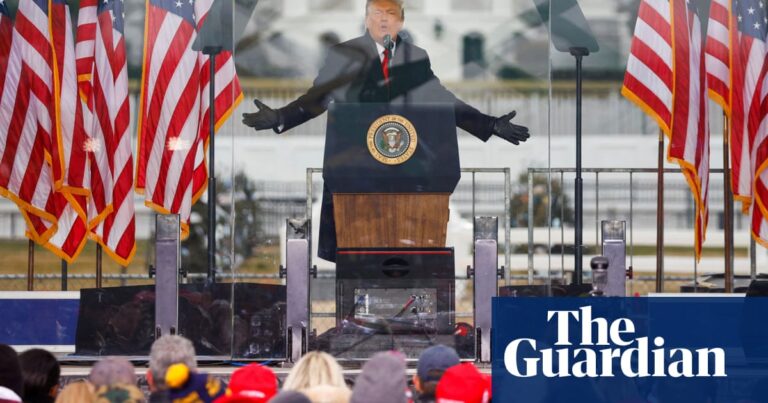The US Supreme Court has ruled that former presidents are entitled to a certain degree of immunity from criminal prosecution, in a decision widely seen as a victory for Donald Trump.
The Supreme Court’s conservative majority, which Trump helped create, ruled 6-3 that a president cannot be prosecuted for official conduct that falls “on the outskirts” of his office, but can be prosecuted for unofficial conduct.
conservatives
-
Alito – Majority
-
Barrett – Majority
-
Gorsuch – Majority
-
Kavanaugh – Majority
-
Roberts – Majority
-
Thomas – Majority
Liberals
-
Jackson – minority
-
Kagan – minority
-
Sotomayor – Minority
The ruling makes it less likely that a federal criminal case accusing Donald Trump of plotting to block the transfer of power will proceed before the 2024 election.
Trump is accused of overseeing a widespread effort to subvert the 2020 election, including two counts of conspiracy to obstruct the certification of the election results, conspiracy to defraud the government and conspiracy to disenfranchise voters.
The accusations include that Trump spread false claims of election fraud, conspired to create a fake electoral roll, pressured Justice Department officials to open a spurious investigation into election fraud and pressured Vice President Mike Pence to disrupt Congress’ certification of Joe Biden’s victory.
The Supreme Court has sent the case back to U.S. District Judge Tanya Chutkan, who will have to review the indictment point by point to determine whether President Trump’s alleged attempts to overturn the results of the 2020 election were legitimate.
The court left much of the analysis to Justice Chutkan, but Chief Justice John Roberts, writing the majority opinion, found that because the Justice Department is part of the executive branch, Trump’s threat to fire the then-acting attorney general for refusing to open an investigation was protected.
Justice Roberts similarly found that Trump’s efforts to pressure Pence would likely be protected because a president discussing responsibilities with the vice president is an example of official conduct. “Mr. Trump is presumed to be immune from prosecution for such conduct, at a minimum,” the ruling said.
The final decision on the Pence issue rests with Chutkan, Roberts wrote. Prosecutors have the burden to “rebut the presumption of immunity” and to determine whether prosecuting Trump “poses a risk of interference with the powers and functions of the executive branch.”
Roberts also wrote that Trump’s comments on January 6 would likely be protected because presidential speech is an essential function of the presidency. But the opinion acknowledged that in Trump’s case, it might be more appropriate to classify his speech as speech by a candidate for public office.
The decision was one of the Supreme Court’s final this term. By waiting until the end, the conservative majority played into Trump’s interests and legal strategy to delay the trial for as long as possible.
The impact of the ruling, which blocks a speedy trial after the Supreme Court moved swiftly to keep Trump on the ballot in March, has already drawn fierce criticism from liberals and others who believe Trump’s case should be resolved before voters cast their ballots in the next election.
Trump has adopted a legal strategy to delay all of his federal criminal cases – he also faces charges in Florida of illegally storing classified documents – until after the election in the hope that he will be re-elected and be able to appoint a staunch supporter as attorney general who will drop the charges.
As currently scheduled, Trump’s trial on election interference charges cannot begin until September 20 at the earliest. The case was automatically frozen when Trump’s legal team filed their immunity appeal, leaving them with just 88 days to prepare their defense.
Last October, Trump filed a motion to dismiss the charges, arguing that he had absolute immunity from prosecution. After Chutkan denied the motion, Trump filed a motion to challenge his ruling with the U.S. Court of Appeals for the D.C. Circuit on December 8.
The appeal contained an automatic stay that would have frozen the court proceedings because if Trump were to win his immunity claim, he would be barred from being prosecuted.
Trump’s election interference case remained on hold while the Supreme Court considered his immunity request after the U.S. Court of Appeals for the District of Columbia Circuit rejected his appeal. Conservative justices, in part because they viewed the case as politically motivated, showed no urgency in resolving the case during oral arguments.
While the justices grapple with a potential test for distinguishing official and private conduct, Justice Amy Coney Barrett has suggested that a special counsel could avoid the lengthy process by redacting the indictment itself and filing cases for clearly private conduct.

